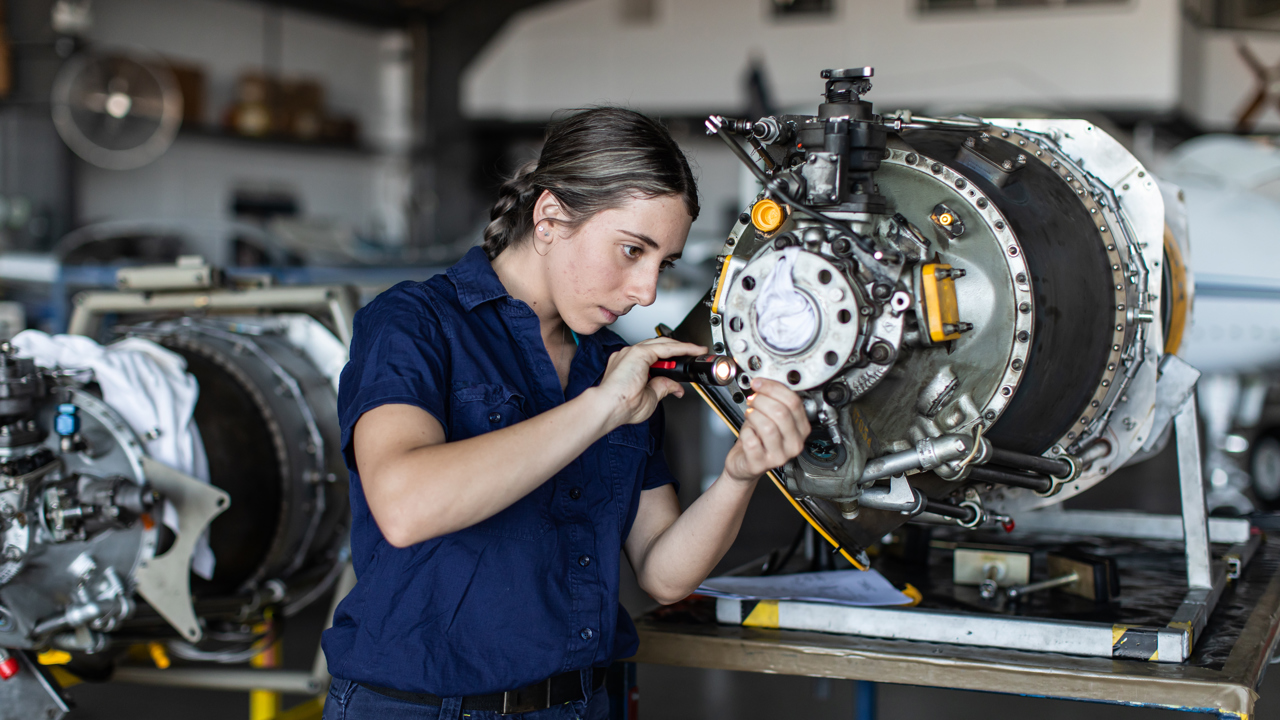As the UK gears up for a general election, our Chief Executive, Dr Hilary Leevers, discusses key policy priorities EngineeringUK wants the new government to adopt, to ensure a thriving future for UK engineering and technology

Q: What are EngineeringUK's main policy asks for the new government?
Hilary Leevers: Our policy priorities focus on 2 core areas. First of all, we’re calling for a national engineering & technology workforce strategy, which will ensure a more strategic approach to workforce planning, enhance diversity in STEM, and support international talent through appropriate immigration and visa systems.
There has been a lot of focus on the need to increase the number of people working in STEM exemplified by the many taskforces trying to address skills shortages in sectors ranging from nuclear to shipbuilding and transport. However, there is no real coordination or cross-government strategy around all the taskforce activities, so a lot of them are trying to solve the same issues, almost competing at times. We need to change that.
Second, and very much linked to the workforce strategy, we need a comprehensive plan for STEM education that includes improving careers provision, properly supporting T Levels, addressing STEM teacher shortages, and growing engineering and technology apprenticeships.
Q: Hilary, why is it important that we address engineering and technology workforce issues now?
Hilary Leevers: Did you know that engineering and technology occupations account for 19% of the UK workforce? That's over 6 million people. But despite the numbers already in the workforce, we’re facing a critical skills shortages and are struggling to meet current demand. Furthermore, engineering and technology jobs are projected to grow faster than any other occupations across all UK regions by 2030
Addressing workforce needs now is vital for our infrastructure, our transition to net zero, and our overall economic growth. Wouldn't it be great if we could turn this challenge into an opportunity by investing in attracting and training more people into these really impactful and rewarding roles.
Q: Can you elaborate on the need for a national engineering & technology workforce strategy?
Hilary Leevers: Absolutely. The Climate Change Committee reported that up to 725k new roles will be needed to support the transition to net zero by 2030. A strategic approach is essential to meet these demands. We need a coordinated effort led by the Cabinet Office to consolidate existing skills taskforces and develop a robust understanding of workforce needs. The strategy should link closely with a STEM education and skills plan, ensuring we address skills shortages and support technological advancements and sustainability goals.
Q: 'What do you think the new government should do as a matter of priority?'
Hilary Leevers: We really want the government to signal that they are serious about tackling the workforce challenges in STEM. In light of this, we ask that in the first 100 days the government commits to a national workforce strategy. We also want them to publish a long-term careers strategy that ensures that young people understand the opportunities and needs in STEM. Another vital areas is to take decisive action on STEM teacher recruitment and retention. The teacher shortages are severe to say the least, with only 54% of STEM subject recruitment targets met in 2022/23. Investing in high-quality professional development for teachers can significantly improve retention and teaching quality.
Q: How do T Levels fit into your policy priorities?
Hilary Leevers: T Levels are now a crucial pathway to provide young people with the practical skills needed in engineering and technology roles. We need to work collaboratively with employers to grow the number of T Level industry placements and raise awareness about their benefits. When T levels are fully rolled-out, we estimate that there will need to be around 30-40k placements in the engineering and technology sectors alone. Increasing awareness and understanding of T Levels among both employers and young people is essential for their success.
Q: Why is diversity in the engineering and technology workforce so important?
Hilary Leevers: Enhancing diversity in our workforce is not just a moral imperative but also an economic one. Improving diversity brings a range of perspectives and ideas, driving innovation and creativity, and it is also a great route to grow the size of the workforce.
Currently, only 15.7% of the engineering workforce is female, compared to 56.1% of the rest of the workforce. We need to break down barriers and create pathways for people from under-represented groups to enter and thrive in engineering and technology careers.
Q: What steps can be taken to grow and sustain engineering apprenticeships?
Hilary Leevers: The next government needs to turbo-start apprenticeships. Engineering apprenticeships need to become more accessible and appealing, especially to young people from diverse backgrounds. This involves breaking down barriers for SMEs, so that more of them can offer opportunities to young people, and ensuring the apprenticeship system is fit for the future. Since 2014/15, starts in engineering-related apprenticeships have dropped by 9%, with significant declines at lower levels and younger ages. To address this, we must improve the transparency and trust in the funding framework and expand pre-apprenticeship support.
Q: How does EngineeringUK plan to get its policy priorities heard during the pre-election period?
Hilary Leevers: Over the next few weeks, we’ll be discussing each of our policy asks in more detail through various activities. We aim to ensure whichever party forms the next government understands the critical importance of our proposals and is ready to take immediate action. Wouldn't it be great if we could secure commitments that will transform the future of engineering and technology in the UK?




